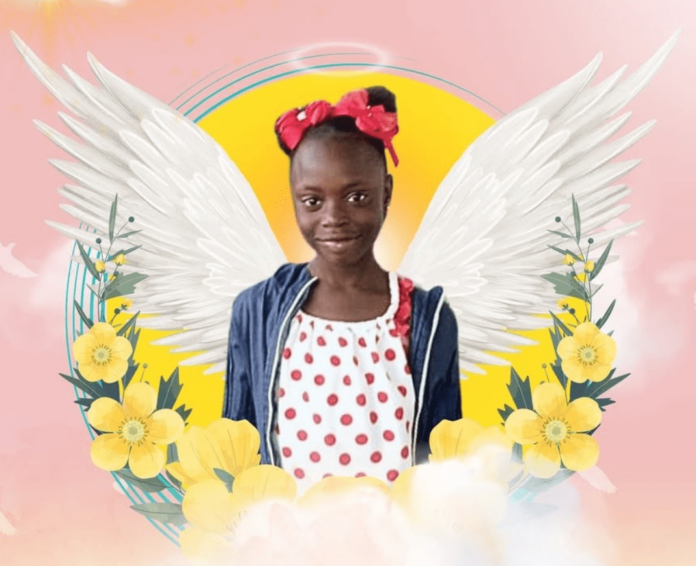The tragic deaths of three young girls in Antigua and Barbuda—Chantel Crump, Yenifer Bridge, and Achazia James—have exposed a harrowing truth: society’s empathy is not distributed equally. While Chantel’s case ignited national fury, Yenifer and Achazia’s stories languish in the shadows, their tragedies muted by biases that dictate who deserves outrage and who can be forgotten. This disparity is rooted in the pervasive myth of the “perfect victim”—a construct that prioritizes innocence, respectability, and perceived vulnerability, while dismissing those who fall outside its narrow confines.
Chantel Crump: The “Perfect Victim” and the Anatomy of Outrage
Chantel Crump’s abduction and murder in March 2025 became a national lightning rod. A 9-year-old in her school uniform, snatched by strangers in broad daylight, Chantel embodied society’s idealized image of blamelessness. The public response was visceral: vigils, protests, and a $5,000 reward for information. Authorities acted swiftly, arresting suspects within 24 hours and draining cisterns in a frantic search. Media coverage saturated headlines, framing Chantel as a symbol of collective vulnerability.
Chantel’s case aligns with the “perfect victim” archetype outlined by experts: young, innocent, engaged in a “respectable” activity (returning from school), and targeted by an obvious stranger. Her story triggered what sociologists term the “Goldilocks dilemma”—a societal expectation that victims must meet rigid criteria to be deemed credible. The public’s outrage, while justified, reveals a troubling hierarchy: Chantel’s age, perceived purity, and the sensational nature of her abduction made her a magnet for empathy, while others are relegated to obscurity.
Yenifer Bridge: Systemic Indifference and the Erasure of Imperfect Victims
In stark contrast, 16-year-old Yenifer Bridge’s death in June 2024 elicited little more than a whisper. A young mother found dead near Fig Tree Drive, Yenifer had repeatedly sought help from authorities to escape an abusive relationship, only to be met with bureaucratic apathy. Language barriers—she was part of Antigua’s Hispanic community—and systemic indifference compounded her marginalization. Media coverage was scant, and nearly a year later, no arrests have been made.
Yenifer’s case underscores how the “perfect victim” myth penalizes those who deviate from societal norms. As a teenage mother, she occupied a liminal space in public perception: her vulnerability was overshadowed by stereotypes about “poor choices” or “risky behavior.” The legal system’s failure to act mirrors broader biases documented in cases where victims are perceived as complicit in their suffering due to their socioeconomic status or life circumstances. Alex Martinez, a Hispanic community leader, lamented the lack of attention, stating, “We supported Yenifer, but her story didn’t fit the narrative people wanted to hear.”
Achazia James: When Brutality Meets Silence
Achazia James’ murder in August 2024 was equally grotesque—her body bore chop wounds and a severed hand—yet the investigation stalled. Her mother, Asabi Charles, has pleaded publicly for justice, but the case lacks the urgency afforded to Chantel. Achazia’s age (15) and the brutality of her death might suggest she’d qualify for public sympathy, but her background and the absence of a “clean” narrative (e.g., stranger danger) relegated her to the periphery.
Here, the “perfect victim” myth intersects with media sensationalism. Chantel’s abduction fit a familiar true-crime trope: the innocent child snatched by outsiders. Achazia’s death, however, lacked a clear villain or tidy storyline, making it less palatable for public consumption. As scholars note, media often strips nuance from trauma, favoring stories that align with preconceived notions of victimhood.
The “Perfect Victim” in Media and Public Consciousness
The disparity in responses reflects a global pattern. Research shows that victims who conform to ideals of innocence, respectability, and passivity receive disproportionate attention, while others—particularly those from marginalized communities—are dismissed as “imperfect.” In Antigua, this bias is amplified by cultural and systemic factors:
1. Age and Innocence: Chantel’s youth and schoolgirl identity positioned her as a “deserving” victim, whereas Yenifer’s motherhood and Achazia’s adolescence complicated their narratives.
2. Class and Race: Yenifer’s Hispanic heritage and Achazia’s socioeconomic status likely influenced the lethargic response to their cases, echoing global trends where marginalized groups face systemic neglect.
3. Media Framing: Chantel’s story was amplified through emotive language (“Our nation is haemorrhaging”) and viral social media campaigns. Yenifer and Achazia, lacking such advocacy, became statistical footnotes.
Toward Equitable Justice: Dismantling the Myth
To dismantle the “perfect victim” narrative, Antigua must confront its biases head-on:
Media Accountability: Journalists must challenge sensationalism and amplify marginalized voices. The Caribbean media’s focus on Chantel’s “wave goodbye” to friends humanized her; similar efforts are needed for Yenifer and Achazia.
Legal Reform: Law enforcement must address systemic failures, such as language barriers and racial bias, that hinder investigations into “imperfect” victims.
Public Advocacy: Grassroots movements, like those demanding the death penalty for Chantel’s killer, must expand to include all victims, regardless of background.
Conclusion: Justice for All, Not Just the “Perfect”
Chantel Crump’s case reminds us of society’s capacity for collective grief. Yet true justice requires extending that compassion to all victims—especially those like Yenifer and Achazia, whose stories defy simplistic narratives. As Antigua grapples with these tragedies, it must reject the hierarchy of victimhood and recognize that empathy, like justice, cannot be conditional. Only then can the island nation heal its fractures and honor every life lost, not just those deemed “perfect.”
“The ‘perfect victim’ starts to look a little more like every one of us, in every circumstance.” Let that be Antigua’s guiding principle.


